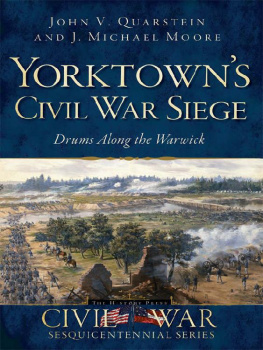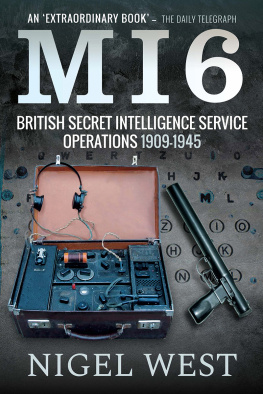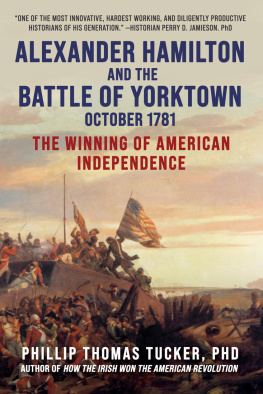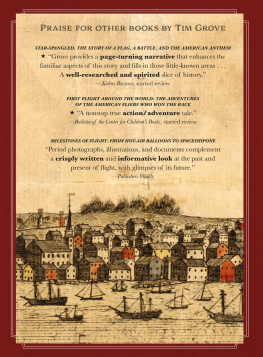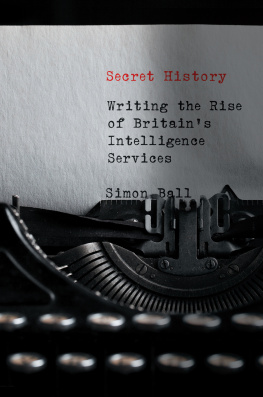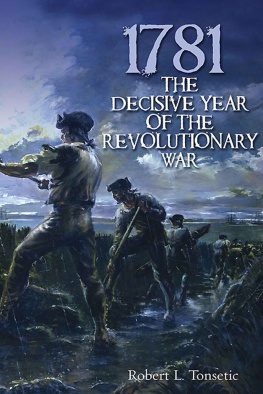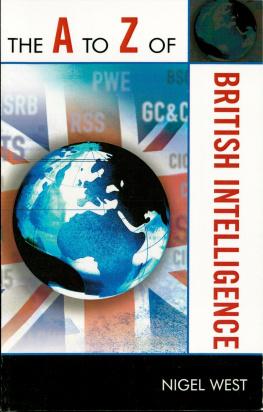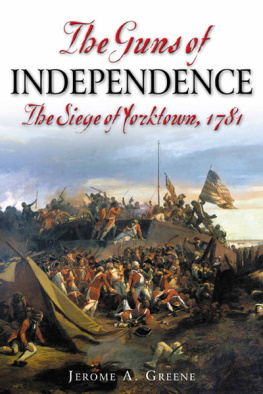
This edition is published by PICKLE PARTNERS PUBLISHINGwww.picklepartnerspublishing.com
To join our mailing list for new titles or for issues with our books picklepublishing@gmail.com
Or on Facebook
Text originally published in 2010 under the same title.
Pickle Partners Publishing 2014, all rights reserved. No part of this publication may be reproduced, stored in a retrieval system or transmitted by any means, electrical, mechanical or otherwise without the written permission of the copyright holder.
Publishers Note
Although in most cases we have retained the Authors original spelling and grammar to authentically reproduce the work of the Author and the original intent of such material, some additional notes and clarifications have been added for the modern readers benefit.
We have also made every effort to include all maps and illustrations of the original edition the limitations of formatting do not allow of including larger maps, we will upload as many of these maps as possible.
BRITISH INTELLIGENCE OPERATIONS AS THEY RELATE TO BRITAINS DEFEAT AT YORKTOWN, 1781
BY
MAJ SCOTT E. CONLEY.
TABLE OF CONTENTS
Contents
TABLE OF CONTENTS
ABSTRACT
This paper examines the role of British intelligence operations during the American Revolutionary War as they apply to the British defeat at Yorktown. It begins with a brief history of British intelligence prior to the war, discusses strategic collection against the burgeoning French-American alliance, examines preconceptions during the planning of the southern campaign, and analyses the tactical intelligence operations of Lord Charles Cornwallis army from the British victory at Charleston in 1780, through the defeat at Yorktown in 1781. It concludes that at the strategic level British intelligence accurately monitored French assistance to the Americans but had difficulty using the information to effect meaningful action on the American continent. At the operational level, General Sir Henry Clinton developed an accurate, reliable intelligence system in the northern colonies but was unable to transfer those successes to the southern theater. At the tactical level, General Cornwallis suffered from initial misconception about the degree of loyalist support in the South, lacked a general knowledge of the physical terrain in the southern colonies and failed to conduct proactive, deep reconnaissance during operations.
ACKNOWLEDGMENTS
I would like to thank the members of my committee for their direction and encouragement. Dr. Joseph Fischers knowledge, perspective, and patience as the committee chairman were critical to the success of this effort. Dr. Mark Gerges provided outstanding advice and editing, and forced me to take a hard look at sourcing throughout the process. Mr. David Pierson provided valuable guidance from the perspective of intelligence professional. I am deeply grateful for the time and effort these scholars devoted to this project. I would also like to thank Mrs. Venita Kruger, Education Technician, for her technical expertise, and kindness.
Finally, a special note to my closet editor, Ms. Jane Smith. Your experience, unbiased eye, and loving encouragement were a constant source of strength throughout this process. Thanks Mom.
CHAPTER 1 INTRODUCTION
On 17 October 1777, British General John Burgoyne surrendered the remnants of his command to General Horatio Gates following the Battles of Saratoga, New York. {1} Britains last attempt to sever the patriot hotbed of New England from the rest of the colonies marked the first defeat and surrender of a significant British force since the American Revolution began and effectively ended major British offensive operations in the northern colonies. Henceforth, the British shifted their attention to the south, believing an outpouring of Loyalist support would reinvigorate the war effort and overextend George Washingtons relatively meager army in the North. Four years later to the day, another celebrated British commander would surrender a second major army, ending Britains attempts to subjugate the American south and effectively retain her colonies in America. This thesis will investigate British intelligence operations during the time period between these two events to discover what intelligence factors, at the strategic, operational, and tactical levels, led to the defeat of the last significant British fighting force in the American colonies. It seems impossible that the preeminent army in the world could commit such a grievous error and effectively sacrifice its last chance of success in retaining one of its most important colonies given timely and accurate intelligence. After an examination of the evidence, however, and given the limitations of the time period, British intelligence appears to have done a good job deciphering the enemys actions throughout the campaign. Though there were still weaknesses in the analysis of the facts at hand, the defeat at Yorktown cannot be attributed to a lack of intelligence, but a lack of political will and unity of command, a failure to understand the conflict they were fighting, and a changing global situation which the British were unprepared to oppose. In order to understand the dynamics of intelligence operations during the American Revolution it is important to first understand the history and functionality of British intelligence, as well as the state of it at the outset of the war.
Unlike many modern governments, English, and later British monarchs did not inherit an established intelligence system loyal to the country and monarchy. Instead, intelligence operations were generally rooted in personal relationships between agents and a specific ruler and when the ruler died or fell out of favor, the system collapsed. As such, the development of British intelligence as an independent entity was a long, inconsistent process, and to isolate a specific date for its creation is impossible. Nevertheless, to understand the situation King George III inherited in 1760 it is critical to understand British intelligence theory and practice in the preceding centuries.
Across Europe, intelligence activities at the national level developed first during the middle-ages in diplomatic circles, with espionage being one of the fundamental duties of ambassadors and envoys. As Richard Deacon puts it, Diplomacy and theft were almost synonymous. {2} Modern diplomacy dates back to thirteenth-century Venice and the Venetians were particularly adept at employing their representatives as information collectors. The English, however, took some time to realize the importance of these activities and spent most of these early years as victims rather that practitioners of the art. Although they eventually caught on, their efforts varied widely in effectiveness, as did the attention and finances paid to them in subsequent centuries. {3}
The first monarch known to place a heavy emphasis on espionage was Henry VII, who in the latter fifteenth century employed agents to track the activities of his enemies both domestically and abroad. In the years before he took the throne it was only through the skilled employment of personal agents Henry avoided being killed or captured by his rival, Richard III. During his reign, he remained vigilant and kept to a small group of trusted advisors for security and information. Henrys system, however, was much more a personal spy ring than a national asset and his chief agent, Christopher Urswick, Recorder of London, did not direct intelligence operations for the king. {4}





